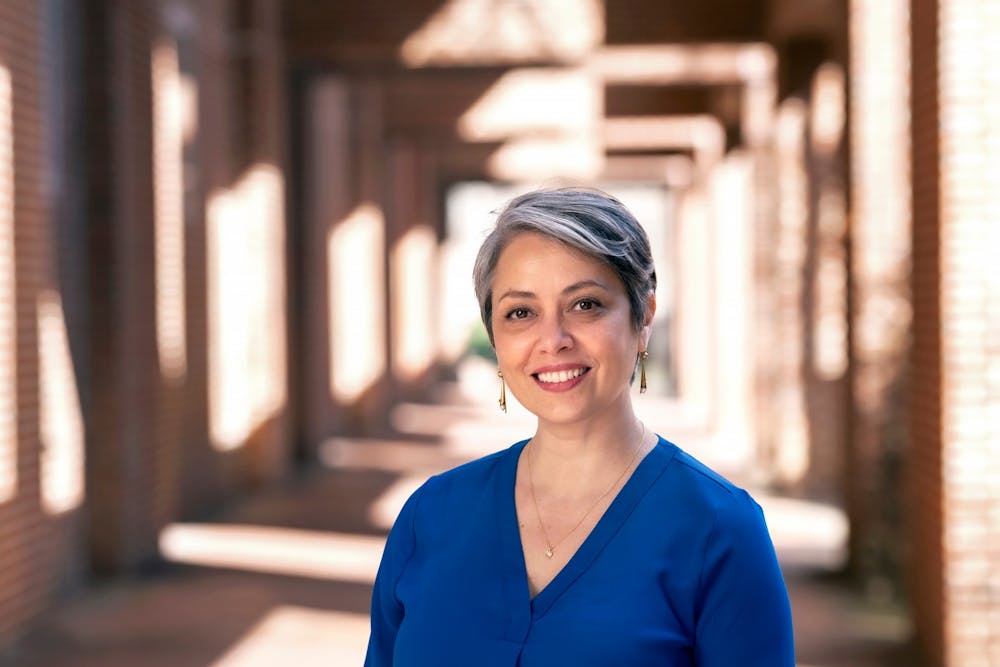DTH: How do you plan to further goals of inclusivity and accessibility in the University Libraries in your new position?
ME: That touches on everything we do. When we are building collections, subscribing to resources or acquiring things for the special collections, how do we think about what is represented in those collections and what is not? We are paying even more special attention to that.
We are also thinking about how accessible our spaces are. How navigable are they? How welcoming are they?
In our events and our programs, we’ve been investing a lot of energy into different ways in which we engage with students. We are investing in not just the curricular ways in which we support students, but also the social and emotional ways. The idea of inclusion and well-being plays a big part in that. There’s a lot of opportunities in all aspects of our work to center and prioritize belonging—a sense that you belong in these libraries and they belong to you.
DTH: In your time at UNC, you have developed fellowships for undergraduate and graduate students and faculty to access special collections at the University. How do you plan to expand opportunities for students to access all of UNC’s special collections?
ME: There is still more to be done. I would love to see it grow to a place where we can offer an even wider variety of research opportunities. Most of our opportunities right now are geared toward graduate students and scholars. I would love to see more opportunities for undergraduates.
We also employ a lot of students, both graduates and undergraduates. They are not just jobs, but a chance for career development and access to employment opportunities that prepare students for whatever comes next beyond their four undergraduate years.
I think there’s a lot of room for us to think about ways in which students have access to research opportunities, job opportunities and experiential opportunities across the libraries, not just the special collections. Think of spaces like the Kenan Science Library Makerspace. What unique opportunities can we provide for students to not only do their own work, but to learn to create programming or operate equipment? There are a lot of interesting opportunities that we already offer and that we can grow.
DTH: Could you name an initiative or moment in your career that you are most proud of?
ME: The fellowships. I am very proud of the work that we’ve done. It’s not just because we are bringing people to our libraries to use our collections and produce new knowledge and new understandings of our past, it is because we are creating community. We’re bringing scholars here and connecting them with experts in the library, scholars on campus and the larger community. We are also trying to support them with added-value activities — teaching them how to manage research data or how to publish with UNC Press. The fellowship program is a wonderful illustration of the special collections’ relevance in the digital age.
Special collections have been historically conceived as spaces for advanced scholars, but we are doing so much work with undergraduate classes and students. I feel really rewarded that it’s been during my career that so much has changed in that sphere. I am really proud of whatever small part I have been able to play in increasing resources.
DTH: What legacy would you like to leave on the University’s Libraries?
To get the day's news and headlines in your inbox each morning, sign up for our email newsletters.
ME: I think about two things. One of those is belonging. The libraries could play an even more central role in how we create a sense of belonging on our campus. I want everyone who is touched by UNC’s libraries to think that the libraries helped them feel like they belonged.
The other thing is collaboration. If we look back and say that we grew in our community focus and community-engaged work, we strengthened our collaborations and created a new future for the libraries because of those things, then I will be satisfied.
DTH: When you’re reading for fun, what genre do you pick up?
ME: I prefer fiction. I tend to like historical fiction. I love literature about places where cultures and languages intersect. I love reading authors of color. I, myself, am Cuban-American and I love reading works by Latinx authors. But if I really need something to get my mind off of things, I read Cold War spy novels.
DTH: What is your favorite book?
ME: That's like asking a parent who their favorite child is. It's really hard for me to pick a favorite book, but I really do love reading and I still try to make time for pleasure reading — it's my form of self-care. The book I'm reading right now is called "The Eighth Life."
@emimaerz
university@dailytarheel.com
Emi MaerzEmi Maerz is a 2023-24 assistant lifestyle editor at The Daily Tar Heel. She has previously covered UNC for the university desk. Emi is a sophomore pursuing a double major in journalism and media and dramatic art.



